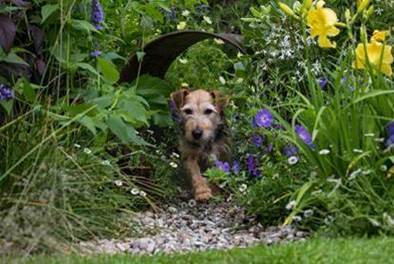Over a quarter of owners (26%) in the East of England say their dog has developed at least one new problem behaviour during lockdown, according to new research released today by Dogs Trust. (1) The charity is issuing advice to owners to help them manage their dog’s behaviour and is asking them to act now, to help their dogs adjust to when they return to work.
The UK’s largest dog welfare charity, which has a rehoming centre in Snetterton has issued the first results from research investigating the impact of COVID-19 lockdown measures on dogs and their owners. The charity surveyed over 6,000 dog owners in May this year, including dog owners in the East of England about the impact of the coronavirus crisis on their dog. Those who took part were asked about their dog’s routines, walks, enrichment and time spent alone during and before lockdown.
Findings from the Research:
Almost a fifth of owners in the East of England (17%) reported that their dogs routine had changed a lot, including having less walks – as owners stuck to government guidance – and being less likely to be allowed to run off-lead. Worryingly over a quarter of dog owners (26%) in the area reported that their dog showed at least one new problem behaviour during lockdown.
Owners in the East of England were also asked about the occurrence of behaviours in different situations before and during the lockdown period. The findings showed there was an:
· 161% increase in reports of dogs whining or barking when a household member was busy
· 22% increase in reports of dogs frequently seeking attention from their owner
· 75% rise in the number of people saying their dog has hidden or moved away when approached
· 45% increase in reports of dogs being clingy or following people around the house during lockdown.
In addition to these findings, after lockdown started, Google searches for ‘dog bark’ increased by around 48% and searches for ‘dog bite’ increased by around 40% suggesting that people were actively seeking help online about their dog’s behaviour.
Rise in abandonments and euthanasia
The single biggest reason why dogs are handed into Dogs Trust is because of behaviour-related issues. While Dogs Trust never puts a healthy dog down, around a third of dogs under three years old are put to sleep by vets because of behavioural problems (2).
The charity is concerned that if these behavioural problems aren’t identified and treated early on that the country could see an increase in dog abandonment, and even euthanasia, in the future.
Dogs Trust predicts that up to 40,000 dogs could be at risk of abandonment as a result of the coronavirus pandemic (3). A rise in problematic behaviours, due to lockdown measures, could compound this issue still further if families find these behaviours difficult to manage, and have no other option but to give up their dog.
Advice for Dog Owners
Behaviour problems are easier to prevent than treat, so Dogs Trust is encouraging owners to take steps now to change the tale and ensure problems don’t develop when things return towards normal.
The risk of dogs developing separation anxiety is an urgent concern raised by the charity. This is particularly the case for puppies, who may never have had experience of being left home alone during the lockdown. Suddenly leaving these pups alone once we go back to our ‘new normal’ lives is very likely to lead to separation anxiety.
For information on how to prevent and mange problem behaviours, visit www.dogstrust.org.uk/changethetale. Owners can also find lots of advice and training videos through Dogs Trust Youtube Channel.
Preventing separation anxiety is much easier than treating it.
· If you have a dog who is used to being left alone, make sure you maintain their ability to cope with this by introducing periods of separation during the day when you are in the house (e.g. behind a baby gate whilst you are working from home) and try and sometimes leave your dog at home when you go out for essential trips.
· The early month of a dog’s life are critical in learning about all aspects of normal family life. This includes being left alone: if pups are not taught this is a normal and positive part of life, they will become anxious about it. Teaching pups to be relaxed when left takes a bit of time and patience at the start but prevents serious problems later in life that are much more difficult to treat.
· Build up the amount of time a pup is separated from family members very gradually and associate it with something positive, such as a long-lasting treat.
· Monitor how the pup responds, and shorten the time left if they show any signs of anxiety.
Where dogs are already showing signs of separation anxiety (such as barking, howling, toileting or being destructive when left):
· Owners should seek help from their vet in the first instance
· Avoid looking for ‘quick fix’ solutions like anti-bark collars or punishing a dog on return. These approaches will exacerbate the problem and result in more serious and more difficult to treat problems in the long run.




